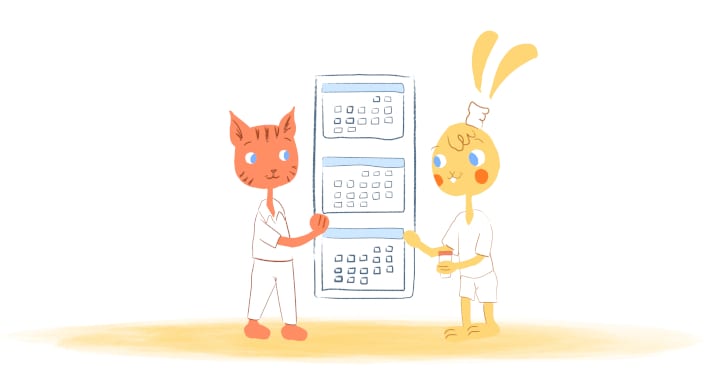

We are a stressed-out nation. According to Gallup, 55 percent of Americans are stressed during the day. In case you’re curious, that’s 20 percent higher than the world average of 35 percent. Let’s all plan to handle our stress better this year.
While we have our own reasons for being stressed-out, it could be work-related or worrying about the future; the fact is that this is something we shouldn’t gloss over. After all, stress affects every part of your body because of the release of stress hormones, primarily cortisol. When not treated, these hormones can damage everything from your cardiovascular to nervous systems.
As if that weren’t worrying enough, stress can contribute to mental disorders like depression and anxiety. And it’s also going to influence your performance and productivity at work negatively.
So, what can you do to manage your stress better? Well, you need to develop a plan that will help reduce and manage your stress. And, while that may sound like a stressful endeavor in itself, it really doesn’t have to be if you take the following steps.
Get Healthy — Get Happy
The first way to cope with stress is to prioritize your well-being. While this can be different from person to person, this commonly includes:
- Exercising regularly.
- Eating a well-balanced diet.
- Getting plenty of sleep.
Notice a theme there? They’re all ways to improve your health. And, when you’re healthy, you can counter the excess stress hormones — mainly thanks to the release of endorphins.
I know what you’re thinking. You don’t have the time to attend to your well-being. Well, that’s hogwash. You need to make the time.
The easiest way to do this is by adding a self-care routine to your calendar. For example, book self-care appointments in your calendar first. That means before, during anything else when you wake-up, block out time for yourself so that you can exercise, meditate, and make a healthy breakfast.
You could also review your schedule and see where there are gaps. Even if you have a 15-minute break between meetings, you can squeeze in a short walk or yoga stretch.
Kiss on My List
Daryl Hall & John Oates were on to something here — besides composing a catchy tune. Physical contact can reduce cortisol levels and lower blood pressure.
Obviously, this doesn’t mean you should go around hugging people without their permission. But, I think it highlights something significant here — only include your top priorities in life on your to-do-lists.
Again, this will vary. But, attending to our own well-being, spending time with friends and family, working on our self-development, and doing the things that we love should be on our lists. After all, they’re the best things in life.
As for the things that you don’t enjoy or aren’t important? Delegate them to someone else or remove them for your list.
With a Little Help From My Friends
For some, sharing their problems with others doesn’t seem like an option. Maybe because you believe that it’s a sign of weakness. Or, you may not want to burden them.
Here’s the thing, if a healthy support system surrounds you, they won’t mind. Even if you’re not seeking advice from them, just having a friend, family, colleague, or manager listen is enough to alleviate some stress.
If you don’t feel like you have anyone to talk to, then consider joining a support group or finding a mental health professional.
In addition to talking to others, don’t hesitate to ask for help. For example, delegating some of your workloads to an employee or dividing up household chores among your family.
Time Is on My Side
Yes, it is. You need to know how to manage it more effectively.
I suggest that you track your time for a couple of weeks. All you need is a notebook and time tracking app to help you see how you’re spending your time. With this knowledge, you can eliminate time-wasters from your schedule, thus freeing up some space in your calendar.
Looking for more time management advice? Check-out our Time Management Guide.
Just Breathe
Believe it or not, taking deep breaths is one of the fastest and most effective ways to lower stress. As explained by the University of Michigan Health System;
“This because when you breathe deeply, it sends a message to your brain to calm down and relax. The brain then sends this message to your body. Those things that happen when you are stressed, such as increased heart rate, fast breathing, and high blood pressure, all decrease as you breathe deeply to relax.”
Best of all, breathing exercises are simple and can be done anywhere. To get started, do the following:
- Sit in a comfortable position.
- Put one hand on your belly and the other on your chest.
- Breathe in deeply through your nose while letting your belly push out your hand.
- Breathe out through your lips — make sure they’re pursed.
- Do this 3-10 times.
- Note how you feel and eventually move on to more advanced exercises.
Search and Destroy
You’re not the one who searches and destroys like Iggy Pop. What I’m talking about here is identifying your stress triggers so that you can eliminate them.
You can do this when tracking your time. In the same notebook, keep track of your stressors. The American Psychological Association suggests recording the situations that “create the most stress and how you respond to them.” Don’t forget to take note of “your thoughts, feelings, and information about the environment, including the people and circumstances involved, the physical setting, and how you reacted.”
You can then use this data to “help you find patterns among your stressors and your reactions to them.” And, after that, start developing ways to remove them from your life.
I Want to Break Free
What if you can’t permanently get rid of specific stressors? I mean, it would be awesome to escape the news or work emergencies. But both are unlikely. The solution? Take a break.
There are several ways you can do this. Throughout the day, schedule breaks in-between work-related tasks where you can meditate or go outside. You can also establish boundaries like not responding to emails during your downtime. And, if you need to break free, plan a vacation.
Smells Like Happiness
Another simple way to reduce stress is by using essential oils or burning scented candles. In particular, try out scents like lavender, citrus, sandalwood, peppermint, vetiver, or jasmine.
Slow Down
In the immortal words of Ferris Bueller, “Life moves pretty fast. If you don’t stop and look around once in a while, you could miss it.”
So, how can you slow down in such a fast-paced world? Well, for starters, plan ahead so that you aren’t running late or rushing around as much. For example, plan your week in advance. That means preparing everything from your schedule to wardrobe to meals so that you aren’t wasting time on these decisions throughout the week.
Another option would be to give yourself a little buffer time. Let’s say that you have to meet a client for lunch at noon. It may only take you ten minutes to get there. But, you should leave at least 20-minutes ahead of time to make sure that you aren’t late.
If there’s a due date, schedule it for a day or two before then in your calendar. Again, it’s better to be early than late. But, this gives you the chance to meet the deadline — if something unexpected occurred.
A couple of other ways to slow down would be breaking large jobs into more manageable tasks, switching to the slow lane when driving, and doing nothing during a short break.
Celebrate
Finally, go ahead and celebrate your accomplishments.
One way to go about this is to make it a part of your evening routine by answering, “What good have I have done today?” Another idea would be to review your calendar on a Friday afternoon to see what you accomplished. And, every month reflect on your achievements, like keeping your stress at bay.
Most importantly, reward yourself by doing something that you enjoy, like going out to dinner or planning a vacation.











Deanna Ritchie
Editor-in-Chief at Calendar. Former Editor-in-Chief and writer at Startup Grind. Freelance editor at Entrepreneur.com. Deanna loves to help build startups, and guide them to discover the business value of their online content and social media marketing.